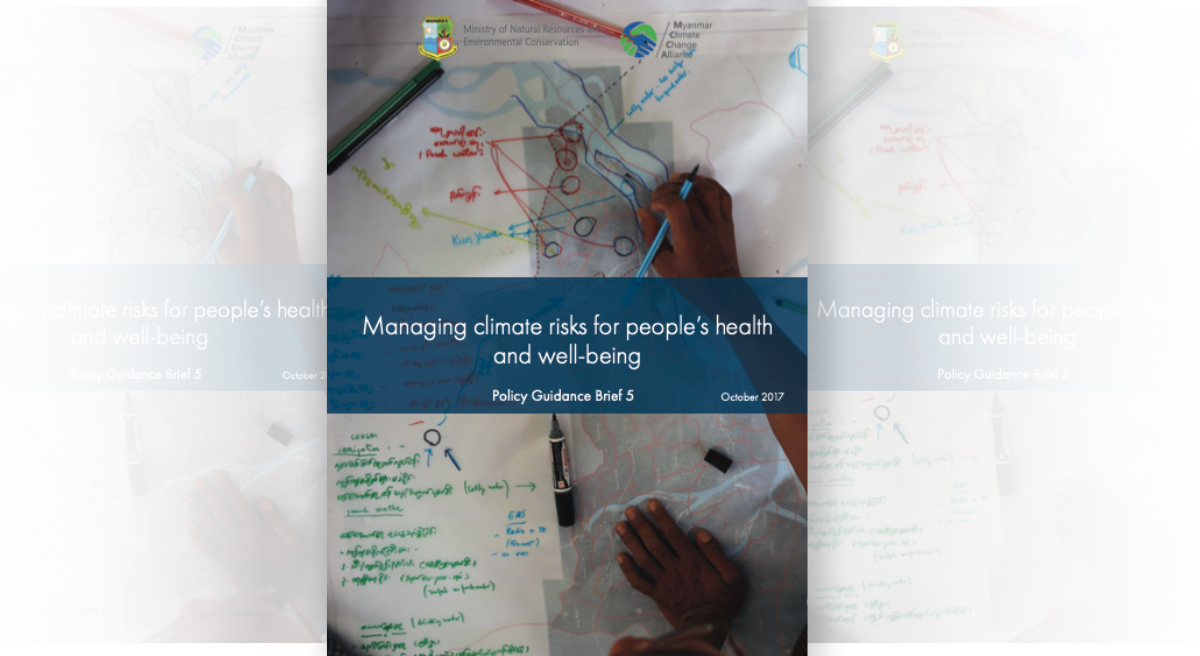Policy Guidance Brief 5: Managing Climate Risks for People's Health and Well-being, 2017 (Myanmar)
The Guidance Brief is a tool to effectively address climate change in Myanmar by aiding the understanding of key sectoral challenges, strategic objectives and specific actions. The guidance brief deals with potential health risks from climate change including: increase of waterborne and vector-borne diseases, heat-related illnesses, injuries and deaths, food insecurity, and increased malnutrition. The poor, women, children and the elderly, as well as communities living in remote high-risk areas, are most vulnerable. To enhance the resilience of its population and economy to climate hazards, Myanmar should work towards integrating climate change into existing disaster risk reduction initiatives and strengthening its early warning capacities. Myanmar should implement various adaptation measures to address the health risks from climate change such as improving access to health services, sanitation and hygiene, climate-proofing of health care infrastructure, and raising public awareness. The expected results of implementation are: (i) climate risk management system is well-established, robust and nationally integrated to respond effectively to increased intensity and impact of risks and hazards on people’s health and wellbeing; (ii) improved social protection, gender consideration, and risk finance capacity to prepare for and recover from potential loss and damage resulting from climate change; (iii) Myanmar’s health system is improved and can deal with climate-induced health hazards and support climate-vulnerable communities to respond effectively to disaster and health hazards from climate change.
